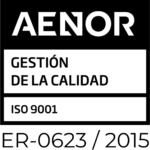View the PDF
 After months of negotiations, the Ministry of Labour and Social Economy has managed to approve the new Royal Decree-Law 28/2020 of 22 September on working remotely, after reaching an agreement between the Executives, trade unions and employers.
After months of negotiations, the Ministry of Labour and Social Economy has managed to approve the new Royal Decree-Law 28/2020 of 22 September on working remotely, after reaching an agreement between the Executives, trade unions and employers.
For remote work to be recognized under this new law, it must be carried out over a period of three months for a minimum of thirty per cent of the working day. The exercise of the right to work remotely is both voluntary and reversible, and the same rights must be guaranteed as those that the workers would have had if they had provided services in the company’s work center.
The agreement to work remotely between the company and the employee must be made in writing: either with the agreement itself incorporated in the initial employment contract or if it is added later. However, it must be formalized before the remote working starts, and a copy must be delivered to the legal representation of the employees and to the Employment Office within ten days.
With respect to the content of the remote working agreement, without prejudice to the provisions of the collective agreement, it should mainly include:
- The inventory of the means, equipment and tools required for the development of the agreed distance work.
- List of the expenses that the worker may have due to the fact of providing services at a distance.
- Working hours, as well as the corresponding percentage and distribution between face-to-face and distance work.
- Remote workplace chosen by the employee.
- The possible means of business control of the activity
- Duration of the agreement itself.
Modifications to the conditions established in the agreement may be carried out, including the percentage of attendance established, provided that there is an agreement between the worker and the company, which must be re-formalized in writing prior to its application, and again communicated to the workers’ representatives.
As for the expenses that the employee may have, due to the fact that the worker will providing services at distance, they must be paid or compensated by the company, and may not involve the assumption of possible expenses related to the equipment, tools and means linked to the development of his or her activity, by the employee.
Regarding the time recording system, it must faithfully reflect the time, that the worker who works remotely, dedicates to the work activity. Furthermore, it must be without prejudice to time flexibility, and must include the time of day at which the worker begins.
The company shall have the right to adopt the measures it deems most appropriate for surveillance and control in order to verify compliance with the obligations and duties of the employee, including the use of telematics means, preserving in its adoption and implementation the consideration of the workers’ rights and dignity.
















